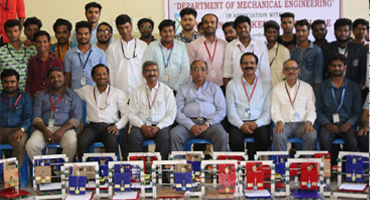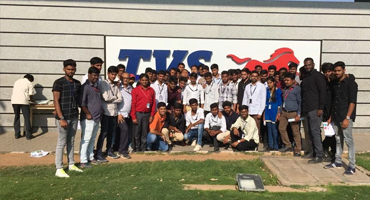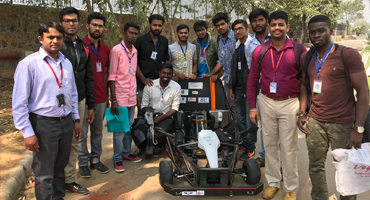BE - Mechanical Engineering
The necessity to design and produce everything from tiny individual parts to enormous structures gives rise to the diversity of mechanical engineering. A mechanical engineer's job is to bring an idea for a product to market. A variety of abilities are required to complete this. A mechanical engineer must develop specific abilities and information. The capacity to evaluate and create moving things and systems may be the only expertise that belongs exclusively to mechanical engineers.
Students have access to a wide range of job choices outside of some of the businesses mentioned above thanks to the breadth of the mechanical engineering subject. No matter what career path they intend to take after graduation, their education will have equipped them with the innovative thinking necessary to develop an intriguing product or system, the analytical tools necessary to meet their design objectives, the capacity to overcome any obstacles, and the teamwork required to develop, market, and produce a system.
To comprehend mechanical systems, mechanical engineers study materials, solid and fluid mechanics, thermodynamics, heat transport, control, instrumentation, design, and manufacture. Energy conversion, laser-assisted materials processing, combustion, MEMS, microfluidic devices, fracture mechanics, nanomechanics, mechanisms, micropower production, tribology (friction and wear), and vibrations are some of the specialized mechanical engineering topics.
The field of mechanical engineering is thought to be the most diverse of all engineering specialties. It has a significant impact on a variety of industries, including but not limited to those in the automotive, aerospace, biomedical, computer, electronics, microelectromechanical, energy conversion, environmental, and bio-medical fields, automation, and manufacturing sectors. In other words, mechanical engineering is actually used in all sectors of the economy and is regarded as a field that is strongly tied to how people live their daily lives.


















